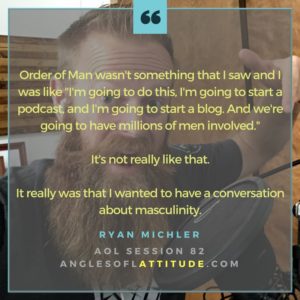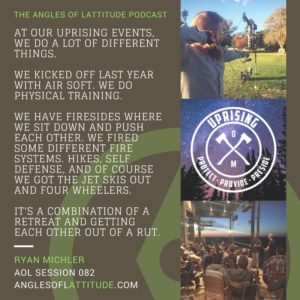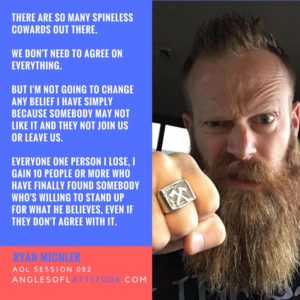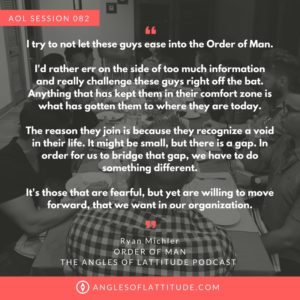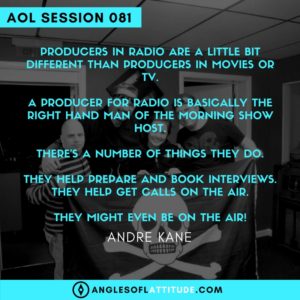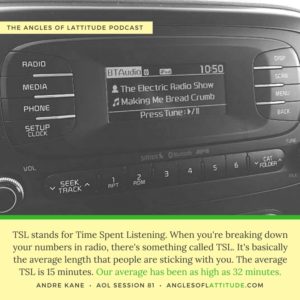Make a Living From Your Passion: Niche Marketing & Niche Product Development
Last week we briefly discussed the idea of a sales funnel. They’re essentially used to make a person who has no idea who you are or what you’re about into someone that’s going to buy from you.
You’ve probably heard of sales funnels in one way or another. So what I shared with you wasn’t anything new.
But, if you’ve been following the blog or the podcast for awhile, you know that I talk about two things when it comes to making a sale in a business. You can use niche product development or niche marketing. Both use sales funnels in their own way.
In this week’s post, I’m going to share with you what those phrases mean exactly and when you might want to use one over the other.
Defining Niche Marketing and Niche Product Development
Both niche marketing and niche product development use avatars to represent the Who. Without having that person in mind, you really have no target in what you’re building your product, service, or even your message for.
However, they both approach the How? in a completely different way.
If you remember from Simon Sinek’s Golden Circle TED talk, he talked about the Why – How – What when it comes to businesses. I can imagine that if you’ve seen the talk, your focus was really focusing on the Why factor – I mean, that IS the focus of the talk after all!
But since a good majority of what we talk about here at New Inceptions is in the Why category, we really don’t need to discuss that right now.
We’re actually looking at the How. The How is all about the process of how products are made.
A quick look at their definitions will show that their end goal is similar, but the approaches are completely different.
Niche Product Development
This is where you make a product for a specific type of client by helping with their pain points from the very beginning. The more intimate day to day information you actually know about these folks and their pains, the better your product will be able to help them out.
If you really do your homework well and build what this niche of folks really needs, you’ll have no problems selling to them – especially if they help you make it. From there you can switch to niche marketing and using sales funnels to increase the number of users or customers you have.
Niche Marketing
With niche marketing, you have a product or service already available. Your job is to simply find potential buyers and convey the benefits of the product to them in a way that makes sense for them to eventually buy.
As we found out in the last post, the main thing you need to learn how to do is help a cold lead turn into a hot lead. Learning how to highlight benefits that will be of interest to that one lead is vital to making the sale.
What’s interesting is that someone who uses niche product development will also employ niche marketing eventually for the same business and/or product. I mean, there comes a time where you can’t keep changing the product too drastically!
Or, they might go the other way. From niche marketing to niche product design. You might have a product that needs another product to explain how to use the first one.
It really depends on where they’re at in life and in business.
You’ll find out more about that in the next post. Right now we’re just going over definitions.
Using Niche Marketing
So niche marketing is something that we’re all familiar with. Especially after last week’s post. I mean, that’s the basics of it.
When it’s used at it’s worst, we hear about used car salesmen. When it’s used at it’s best, we can think about people who have made a fortune in direct sales or MLM’s. Or, another thought, is that there’s already a market for a product or service and one company copies another company’s efforts.
Those situations, where a product or service is already been proven to work, are about the only times when niche marketing can be used effectively.
For example, niche marketing is exactly what Brendon Burchard does with Expert’s Academy. However, he uses sales funnels instead of 1 on 1 meetings with potential buyers.
When you apply niche marketing to a new product or service – the results can be disastrous. Not only for the new company, but potentially for the end user as well!
Again, in niche marketing, your job is to be able to communicate the product or service to the potential buyer. That means being able to express potential benefits and caring if they get the right product for their needs.
Using Niche Product Development
But let’s say you don’t want to be a car salesman and you don’t want to be involved in an MLM?
You have this new idea that you want to get out into the world. But it’s not market tested. Or perhaps you don’t have even an idea yet? That’s fine as well!
From what I’ve learned first hand and seen out in the world, niche product development (and properly scaling it) is the best way to not only make sure you don’t fail at your first company, but it’s also the most cost effective method.
Since this is something that might be sounding a bit vague at this point, here’s a breakdown of how niche product development usually works.
-
Ask people what they need in a market you’d like to help.
If you’re looking to do something with high earning potential, the best choice is a product you can make into a money tree – say a SaaS product or a membership community. Essentially you’re making a tool for a market that they’re “renting” access to.
Worst choice is a service – because just like Robert Kiyosaki says, you can only work so many hours a day. Even when you bring on more people, there’s a cap there as well. -
Bring on help to make the product.
You don’t want to be stuck with all the creation efforts. Again, there’s only so many hours in a day for you to work on this thing. It’s not like Trump made all of his buildings by himself. You need to bring on construction workers for your new project.
-
Ideas take money to develop.
As much as we’d like them to be, businesses aren’t 100% free to build. Where do you get that money? Investors and early customers are a couple of ideas. Either way you go, you might need to learn how to persuade them to get behind your idea.
-
Run a beta test.
Get as many people on board to try out your new product in an incomplete state. Get validation and feedback from those folks before you finalize the product.
-
Sales Funnel
When you do have your product made, it’s time to get that sales funnel going. Again, refer to the last post for the basics.
You can apply this method to any type of product based business. Whether it’s information based, physical, or software. Just remember that if they’re having to rent their access from you, that’s when you have the potential to bring in the most income! More users means more dollar bills.
Action Steps:
So hopefully this finally explains some of the differences of the two main ways to be an entrepreneur. If you want to know more about Niche Product Development, check out Pat Flynn’s Will It Fly book. That book covers pretty much everything you need to know in full.
Again, there’s other options out there, such as The Foundation, if you need more accountability.
Next week, we’ll talk about some situations in your life where you might opt to use one method versus the other.



